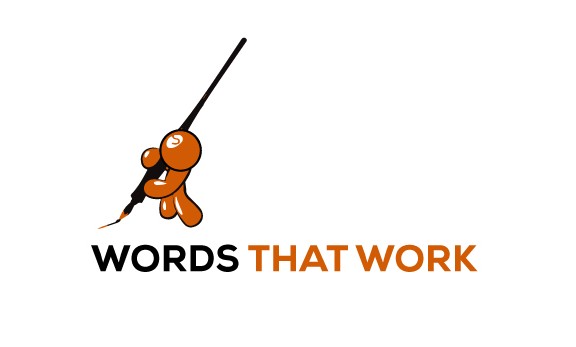How Many Words Should Your Online Content Be?

This is a question I’ve been asked a lot and perhaps unsurprisingly the answer is not definitive. The short answer is:
As long as it needs to be
This means writing based on the purpose, the needs of your audience, and with enough substance needed to do the topic justice.
It’s similar to asking: how long is a piece of string. There’s no concrete answer and it varies on the what’s being addressed and medium of the content. There are some general guidelines for blog posts, web copy and social media posts that are explained below.
BLOG POSTS
A common school of thought that blog posts should be, short, scannable and to the point, because people on the web don’t read information they scan information… Right?
Half right…
It’s true that posts should be to the point and that web users scan through information in their quest to find the answers to questions they are searching for.
However to assume that people have the attention span of a sparrow is doing a disservice to those looking for in-depth information that digs below the surface. The more in depth research that goes into an article and the more specific the information, the more likely the blog post will stand out from others covering similar topics.
That usually means the post is going to 1000 words plus. Research has found that longer articles – that is more those more around 2000 words – are also more likely to be linked to.
The article I linked to to help research this post from Quick Sprout (an online marketing resource centre) is a case in point. It’s an example of a long-form blog post that where every word is justified. It does this through providing facts, figures and graphs, giving people (and me) more definitive information to the questions they want answered.
‘How-to’ articles and those that answer simple questions are often shorter, often between 400-500 words and that’s perfectly sensible. If it’s genuinely useful it’s going to be appreciated by users, shared through social media and potentially linked to.
There is such thing as too long though. If a post is going over 2000 words, stats show shows many online visitors will start dropping off. This means it’s probably going to work better to break down a broader topic into something more specific, or cover the idea as a series of posts instead.
Remember: Asking yourself what the purpose of the blog is and what you want people to know from reading it will provide some guidance to how long a blog should be.
WEB PAGES
A previously held theory was that for SEO purposes every web page should be at least 300 words. In 2015, this is becoming less important. More important is that the page’s content addresses a single subject or purpose single and can easily be understood by people (and search engine crawlers indexing the site)
For example, a company selling farm machinery should create a page for lawn mowers, and separate pages for brushcutters, generators and so forth. For ride on mowers it’s even a good idea to have a sub page that drops down from under the lawn mower page.
Again, like blog posts, web pages should be long enough to get the message across without filling up with words for the sake of it. Depending on the complexity of your product/service and how familiar it will be this may mean more than 300 words, but for some pages specific to a certain product or service, 300 words will be too much.
A good way to gauge if the page is rambling is if it repeats itself in any way. Make every sentence – nay – make every word count.
Compared to blog posts, with landing and home pages people are making snap judgements about your business compared to the next listing and getting to the point quickly and persuasively makes all the difference in hooking them to make an enquiry.
Like a news article, start with the most important information in the first paragraph. If you’re selling something, that will be how what you are offering will solve problems and make people’s life easier. After all, people are looking always asking what’s in it for them.
SOCIAL MEDIA POSTS
Obviously twitter restricts tweets to 160 characters for a reason. It forces you to say things in a quick, direct and often with twitter users, snarky way. But remember if it’s between 70-100 characters, someone who re-tweets can add their own comment or thought to the tweet.
Faceobook is less restrictive but again generally the shorter the better is encouraged to provide a better click through rate.
Something like “DIY Hacks to Cut Your Energy Bill in Half, is more effective than “Want to save money on your energy bill? Try these easy examples.”
Remember with Facebook when you share a link, the meta description of the post (i.e the 160 character description you see in search engine listings) is also shown, along with an image. That means the text you add into the most itself should be as succinct as possible.
When it comes online content, the key takeaway is to make whatever it is you have to say count. Really, this should apply to any writing, but with information overload of the digital world of today, it’s even more important.
Just like a good album. Make it all killer, no filler.

Leave a comment